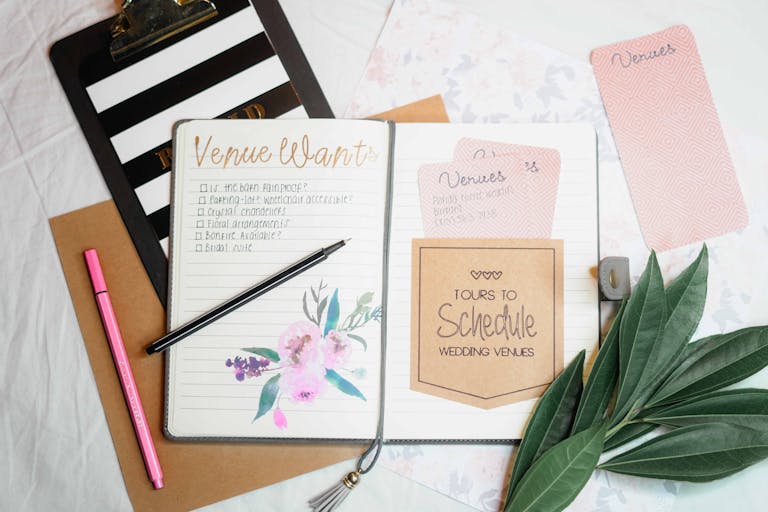7 Most Dangerous Planning Mistakes Couples Make

Planning a wedding can be an exciting yet challenging experience, especially when it comes to managing your budget. To help you navigate this process more smoothly, we’ve compiled a list of seven common wedding budget mistakes and how to avoid them.
1. Skipping The Research Phase
One of the most critical errors couples make is neglecting thorough research. Before making any decisions, it’s essential to explore all options within your budget for each aspect of your wedding. This applies to everything from selecting a florist to choosing a venue.
To conduct effective research:
To conduct effective research:
- Use online resources to find local vendors
- Review portfolios and request price ranges
- Seek recommendations from friends and family
- Narrow down your choices to 3-5 potential vendors for each service
Remember, while this process may be time-consuming, it’s a valuable investment. Thorough research helps you avoid impulsive decisions and ensures you don’t miss out on better, more cost-effective options.
2. Failing To Prioritize Your Must-Haves
Before you start booking vendors, sit down with your partner and identify your top three wedding priorities. These could be anything from having gourmet catering to securing your dream venue or hiring a great photographer.
By establishing these priorities early on:
- You can allocate your budget more effectively
- You’ll avoid overspending on less important elements
- You can ensure your wedding reflects what matters most to you both
Remember to remain flexible on aspects that aren’t in your top three. This approach will help you maintain your vision while staying within your budget.
3. Neglecting To Track Expenses
Keeping a detailed record of all wedding-related expenses is crucial for staying on budget. Many couples overlook small or unexpected costs, which can quickly add up and derail your financial plan.
Common overlooked expenses include:
- Gifts for the wedding party
- Vendor gratuities
- Extended hours for certain services
To avoid this mistake, use a comprehensive wedding budget spreadsheet to track all expenses meticulously. This will help you account for every cost and make informed decisions throughout the planning process.
4. Forgoing Contracts For Services
Even when working with friends or family members (“friendors”) who offer their services at a discount or as a gift, it’s essential to have a written contract. This protects both parties and ensures that all expectations are clear.
A contract should cover:
- Specific services to be provided
- Timelines and deadlines
- Contingency plans in case of emergencies
Remember, a contract isn’t about distrust; it’s about clarity and accountability. It can prevent misunderstandings and ensure your wedding day runs smoothly.
5. Not Reviewing Contracts Close To The Wedding Date
Two to three months before your wedding, take the time to re-read all vendor contracts. This step is crucial for several reasons:
- It allows you to confirm final payment deadlines
- You can review any deadlines for selections (like upgrades and or add-ons)
- It reminds you of any potential additional charges or cash payments required
By doing this review, you can address any issues well in advance and potentially save money by avoiding last-minute changes or oversights.
6. Missing Opportunities To Consolidate Vendor Services
One effective way to reduce costs is by consolidating services from individual vendors. Many wedding professionals offer multiple services, and booking several with one vendor can lead to savings on travel, setup, and equipment costs.
For example:
- Photographers offering Videography and vice versa.
- Photographers/DJ’s offering photobooth services.
- Florists might also provide rental items like linens or tableware.
- DJs often offer lighting services and also MC’ing
Always inquire about bundle deals or additional services when talking to potential vendors. This approach can save you both money and the stress of coordinating with multiple providers.
7. Lacking a Designated Point Of Contact On The Wedding Day
While hiring a coordinator might seem like an unnecessary expense, not having a dedicated point person can lead to stress and confusion. If you choose not to hire a professional, designate a responsible friend or family member to handle questions and oversee details on your wedding day.
This person should:
- Be familiar with your timeline and vendor information
- Handle small decorative tasks
- Direct the setup of your event
Providing them with a detailed wedding day timeline can help ensure everything runs smoothly, allowing you to enjoy your special day without constant interruptions.
By avoiding these common mistakes, you’ll be better equipped to manage your wedding budget effectively and create the celebration you’ve always dreamed of. Remember, careful planning and smart decision-making can lead to a beautiful wedding that doesn’t break the bank.






